I always knew that everyone has a different definition of development. For some, it means advanced healthcare and education or better opportunities while for other it’s about preserving cultural heritage, sustaining local economies, and living in harmony with the environment. People seek things that are most important for them i.e. things that can fulfil their aspirations or desires.
I believed there was a basic idea of development that everyone has in common, such as having access to education, healthcare, and infrastructure. My idea of development was to reach one’s full potential, but it was questioned in one session of my journey as an India Fellow. During that session, we engaged in several activities where we put ourselves in the shoes of others, redefining my idea of development.
A New Perspective On Development Through Role-Playing
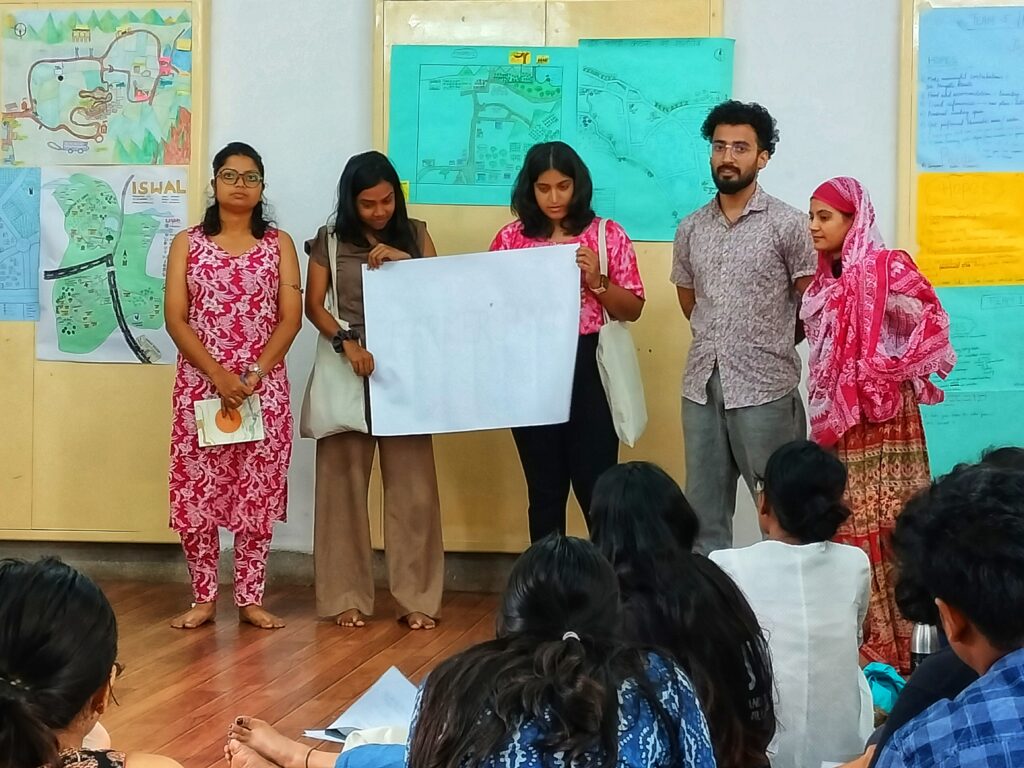
At the start of the day, our facilitator Inir Pinheiro briefed about his organisation Grassroutes. The goal of the session was to understand development as a multidimensional concept where it is different for everyone. For this, we performed few activities like role playing as farmers with varying levels of resources and imagined ourselves in the stories of rural India.
I was a relatively well-off farmer, and my initial reaction was to maximise my profits independently, assuming that this was the most logical path to development. However, as the ‘game’ progressed, I saw how my choices, while beneficial for me, contributed to the despair of others. Marginal farmers struggled with debt, poor yields, and a decline in their livelihoods. This highlighted the fragile balance in rural economies.
It made me realise how my earlier, simplistic view of development—focused merely on individual growth—overlooked the interconnectedness of communities and the collective well-being required for development.
The Plight Of Marginal Farmers
After this activity, during our reflection time, we understood the helplessness of the farmers and how they survive each season. In the second half of the day, Inir asked us to write what development meant for a person living in rural India. I wrote the most optimistic first-world answer: education, healthcare, and infrastructure. These things were not accessible to a person living in rural India because of a lack of resources and awareness, minimal choices, and a constant cycle of poverty.
Real-Life Stories From Rural India
Inir shared five stories from rural India, each revealing a different perspective on development. A pregnant woman from a tribal community needed access to healthcare and transportation. Rajesh, an unmarried man in Bundelkhand, sought access to water and better local governance. An infant in Kalahandi, sold for ₹20, highlighted the need for basic sustenance and dignity. A young man from a tribal community wanted to preserve his home and identity, threatened by infrastructure projects. Finally, Seema, sold into forced marriage, longed for the right to choose and escape her situation.
These stories led me to question my understanding of development. Is my understanding of development covered by the veil of urban India where I fail to see the perspective of others? Whether the talk about greater good should by pass the collateral damage aspect of development?
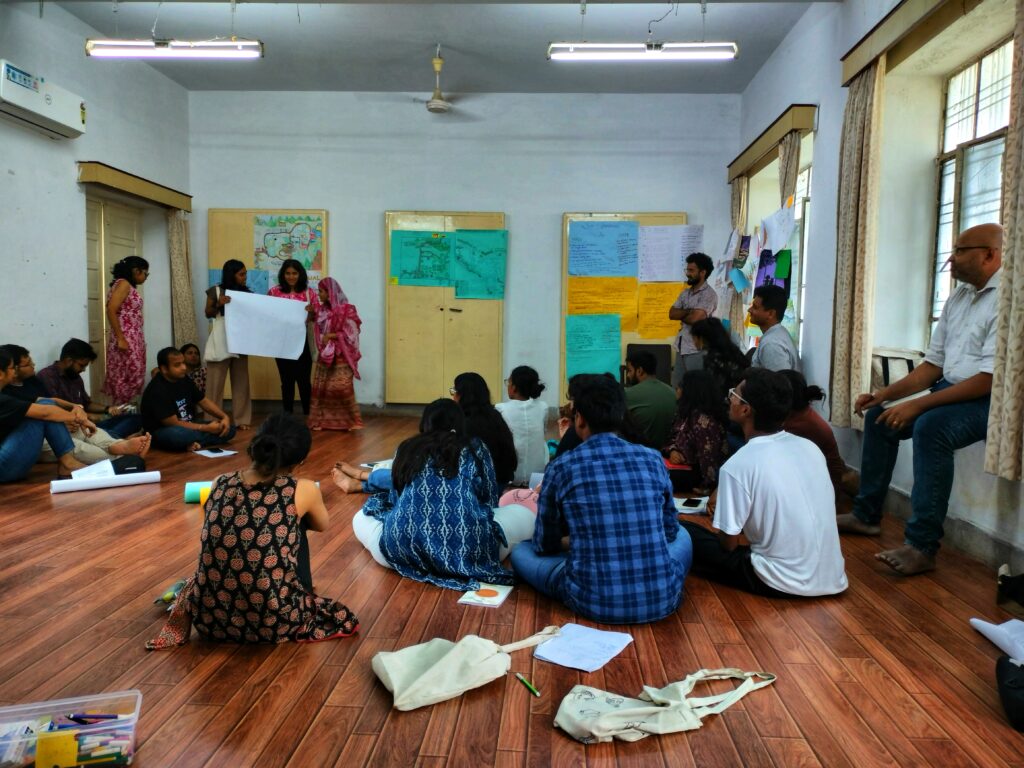
Contrasting World-Views
These stories were in complete contrast to my worldview. Before this session, my definition of development came from the city of Faridabad, where everything was available and affordable to some extent. The world-class hospitals, schools, colleges, industries, and markets were filled with abundance. People are in a rat race to earn more than others, to be superior to others. We tend to limit our definition of development to mere availability of resource and infrastructure.
Before this session, if someone had presented these five problems to me, I would have considered them simple problems of resource scarcity, which could be easily solved by a capital influx from the government. I would have reduced their problems to mere unavailability of resources.
But when I heard the story of a young man who does not want infrastructure in exchange for his forest—which is his home, family, and source of livelihood—I realised that we cannot simply say, “pack your bags and leave everything you have.” For him, development would mean being left alone in his forest without any intervention. For Rajesh, the problem of water scarcity seemed simple, but I overlooked how this issue affected his entire life. He was unable to marry and fulfil his basic need for a partner. There is an interconnectivity of problems where one issue can significantly alter another in a very different manner.
When I heard the story of Seema, I recalled a similar situation where someone I knew paid the father to marry his daughter. She is now living a happy life with her two sons and husband, but after hearing Seema’s story, I kept thinking about how the action of her father could have profoundly affected her life. Taking away her right to give consent could potentially destroy her future.
Reflections
After hearing these stories, Inir asked us to look into our cameras and consider what development meant for that person. I was unable to write anything; I couldn’t define development. My belief about development was shattered, leaving me with questions about how we try to solve the problems of others. We forget their needs are not just infrastructure projects, but rather about their dignity.
I gained a new perspective on understanding the issues faced by farmers through role-playing and various other activities. The story of rural India is very different, and we can’t compartmentalise it into a simple problem with a straightforward solution. I have learned that we should not just find a problem statement and provide a solution for it but rather understand the people going through it and work with them to arrive at a solution.

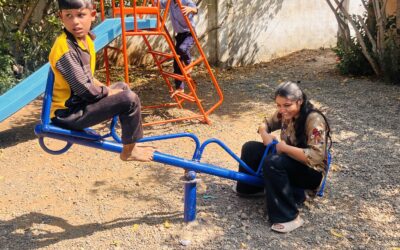
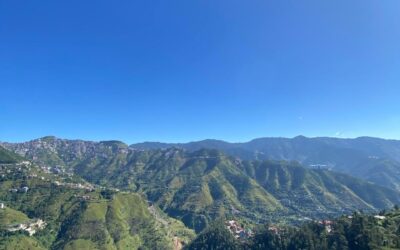
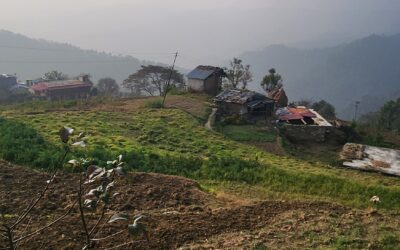
0 Comments